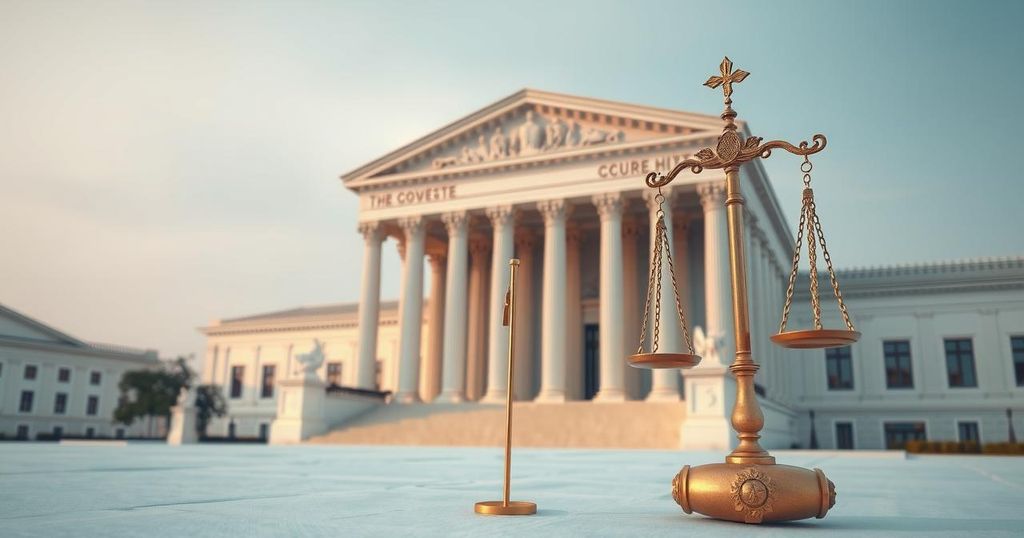A trial for prominent Tunisian opposition leaders accused of conspiring against state security is set to begin on Tuesday, facing criticism from rights groups for perceived political motivations. Approximately 40 individuals, including former diplomats and critics of President Saied, are implicated, with charges carrying severe penalties. The proceedings have raised concerns over fairness and transparency, leading to broader warnings about the decline of civil liberties since Saied’s power consolidation in 2021.
The trial of several prominent Tunisian opposition figures accused of conspiring against state security is set to commence on Tuesday. Critics and human rights organizations have condemned the proceedings as unfair and politically driven. The case involves approximately 40 high-profile defendants, including former diplomats and outspoken commentators who have criticized President Kais Saied. Many were arrested following a wave of detentions in February 2023, after President Saied labeled them as “terrorists.”
The defendants face serious charges, including “plotting against state security” and “belonging to a terrorist group,” which could result in significant prison sentences. Notable individuals among the accused include Jawhar Ben Mbarek and Abdelhamid Jelassi, both of whom were influential figures in Tunisia’s political landscape and are critical of Saied. This trial follows a broader concerning trend regarding the erosion of freedoms since Saied assumed control through a power grab in 2021.
The charges also encompass other activists and business figures, such as Khayam Turki and Chaima Issa, as well as international figures like French intellectual Bernard-Henri Levy. These individuals are accused of engaging with foreign entities and diplomats. Ben Mbarek, addressing the situation from confinement, stated that the case signifies an effort to systematically suppress dissent and denounced it as “judicial harassment.”
Concerns have emerged regarding the fairness of the trial, particularly as it is being conducted remotely, excluding the defendants from appearing personally. Family members and human rights advocates have criticized this approach, asserting that all accused should be present for a proper judicial process. Some individuals involved in the case are currently out on bail or have fled the country, while others face trials under various pretexts, including the spread of misinformation.
Notably, Ennahdha leader Rached Ghannouchi was sentenced to 22 years in prison for separate charges of plotting against state security, further highlighting the crackdown on dissent. The United Nations has urged Tunisian authorities to cease the pattern of arbitrary detentions and respects for human rights. In response, Tunisia’s Foreign Ministry dismissed the UN’s criticisms, asserting that the charges pertain to crimes unrelated to political activity or freedom of expression.
The upcoming trial of opposition figures in Tunisia raises significant concerns about the integrity of the judicial process and the political motivations behind the proceedings. With allegations of unfair treatment and a systematic suppression of dissent, the situation may further reflect the deterioration of democratic freedoms since President Saied’s rise to power. Observers, including the United Nations, continue to advocate for human rights and transparency in Tunisia.
Original Source: jordantimes.com




